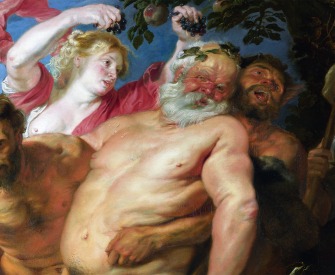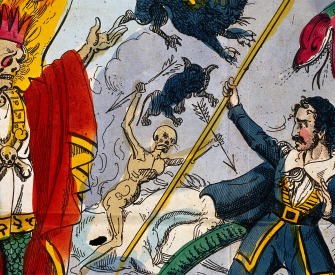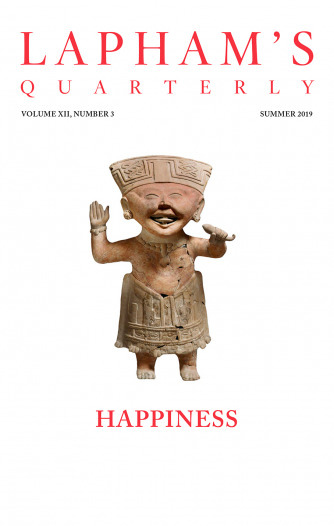I once heard it given as an instance of the frightful depravity of a certain tribe in the Pacific that they had no word in their language to express the idea of virtue. The assertion was unfounded; but were it otherwise, it might be met by stating that their language is almost entirely destitute of terms to express the delightful ideas conveyed by our endless catalogue of civilized crimes.
In the altered frame of mind to which I have referred, every object that presented itself to my notice in the valley struck me in a new light, and the opportunities I now enjoyed of observing the manners of its inmates tended to strengthen my favorable impressions. One peculiarity that fixed my admiration was the perpetual hilarity reigning through the whole extent of the vale.
There seemed to be no cares, griefs, troubles, or vexations in all Typee. The hours tripped along as gaily as the laughing couples down a country dance.
There were none of those thousand sources of irritation that the ingenuity of civilized man has created to mar his own felicity. There were no foreclosures of mortgages, no protested notes, no bills payable, no debts of honor in Typee; no unreasonable tailors and shoemakers, perversely bent on being paid; no duns of any description; no assault-and-battery attorneys to foment discord, backing their clients up to a quarrel, and then knocking their heads together; no poor relations, everlastingly occupying the spare bedchamber, and diminishing the elbow room at the family table; no destitute widows with their children starving on the cold charities of the world; no beggars; no debtors’ prisons; no proud and hard-hearted nabobs in Typee; or to sum up all in one word—no money! That “root of all evil” was not to be found in the valley.
In this secluded abode of happiness there were no cross old women, no cruel stepdames, no withered spinsters, no lovesick maidens, no sour old bachelors, no inattentive husbands, no melancholy young men, no blubbering youngsters, and no squalling brats. All was mirth, fun, and high good humor. Blue devils, hypochondria, and doleful dumps went and hid themselves among the nooks and crannies of the rocks.
You would see a parcel of children frolicking together the livelong day, and no quarreling, no contention among them. The same number in our own land could not have played together for the space of an hour without biting or scratching one another. There you might have seen a throng of young females, not filled with envyings of each other’s charms, nor displaying the ridiculous affectations of gentility, nor yet moving in whalebone corsets like so many automatons, but free, inartificially happy, and unconstrained.
There were some spots in that sunny vale where they would frequently resort to decorate themselves with garlands of flowers. To have seen them reclining beneath the shadows of one of the beautiful groves, the ground about them strewn with freshly gathered buds and blossoms, employed in weaving chaplets and necklaces, one would have thought that all the train of Flora had gathered together to keep a festival in honor of their mistress.
With the young men there seemed almost always some matter of diversion or business on hand that afforded a constant variety of enjoyment. But whether fishing, or carving canoes, or polishing their ornaments, never was there exhibited the least sign of strife or contention.
The old men, of whom there were many in the vale, seldom stirred from their mats, where they would recline for hours and hours, smoking and talking to one another with all the garrulity of age.
From Typee. Melville’s father was an importer who went bankrupt in 1830, when Melville was eleven, forcing the family to move from New York City to Albany. The young Melville worked as a clerk, farmer, teacher, and bookkeeper before joining the crew of the whaling ship Acushnet; he later referred to the ship as “my Yale College and my Harvard.” He abandoned ship while in the Marquesas Islands, spending a month on Nuku Hiva before returning to Tahiti on an Australian whaler. Typee, the account he wrote of these adventures, was published in 1846 to instant commercial success.
Back to Issue



